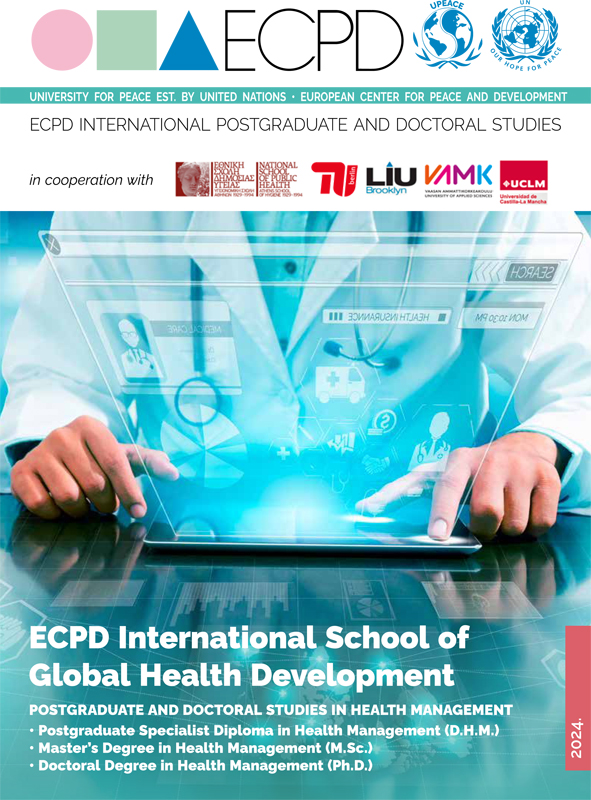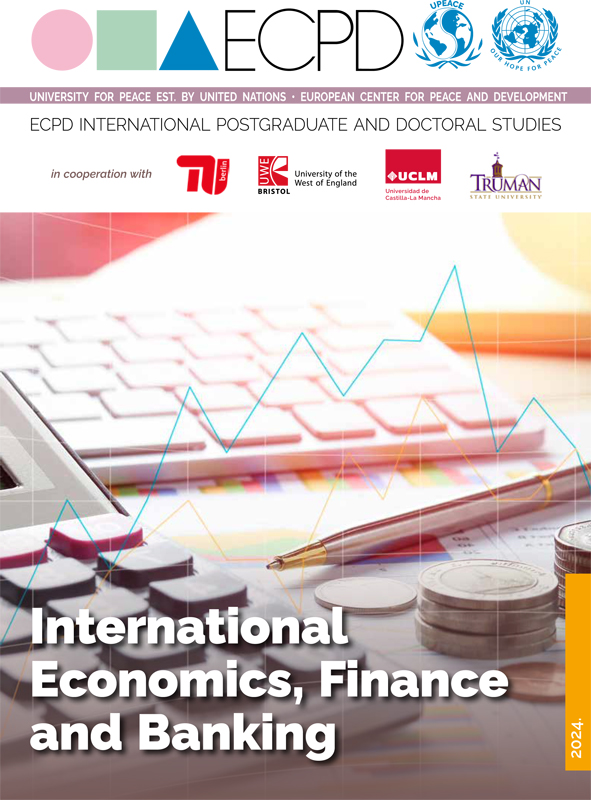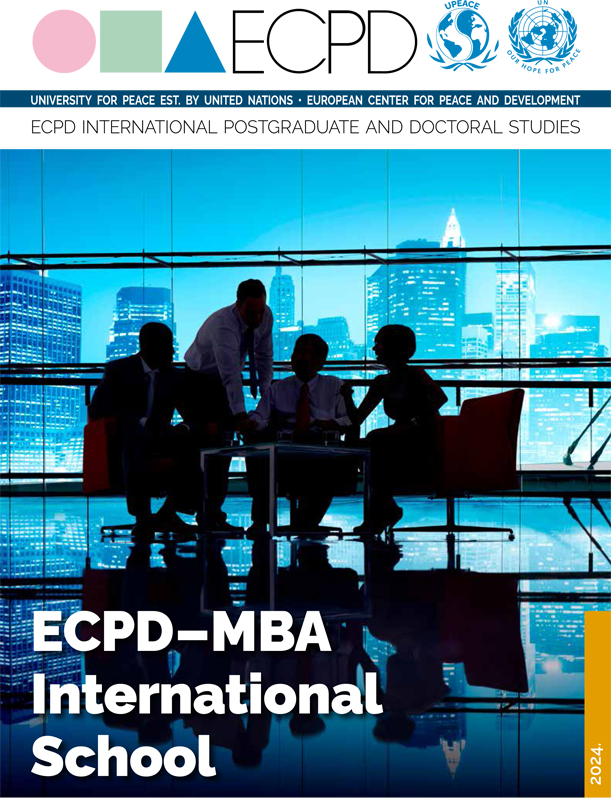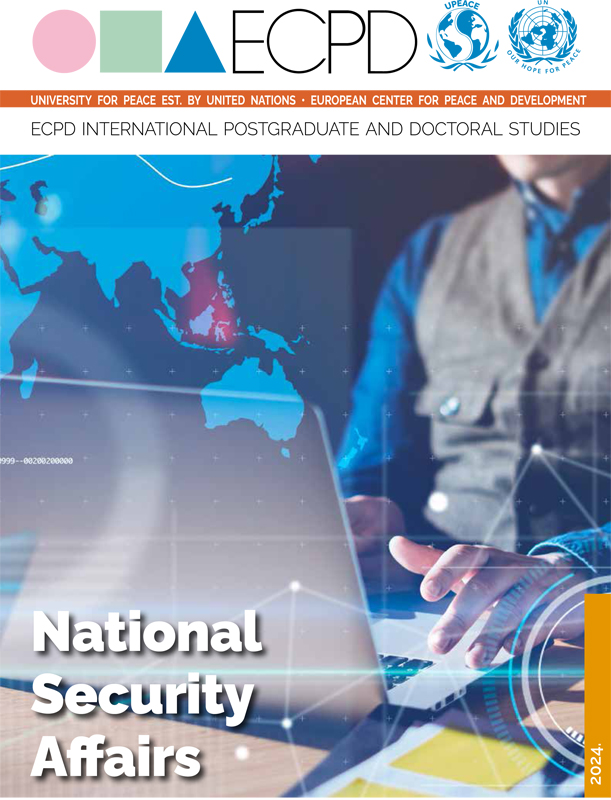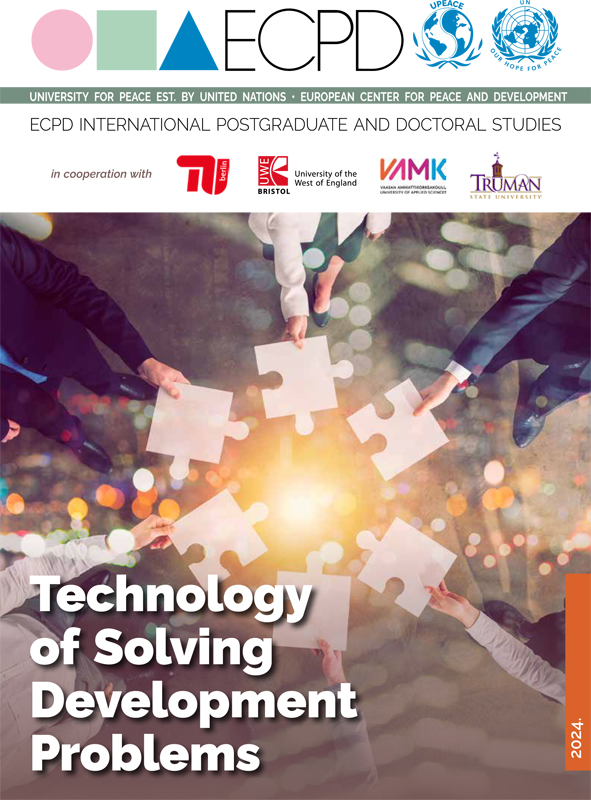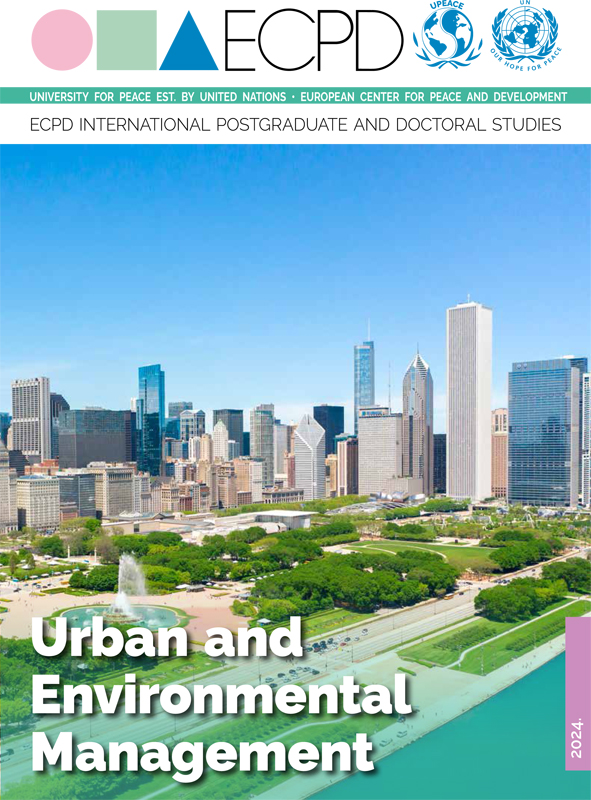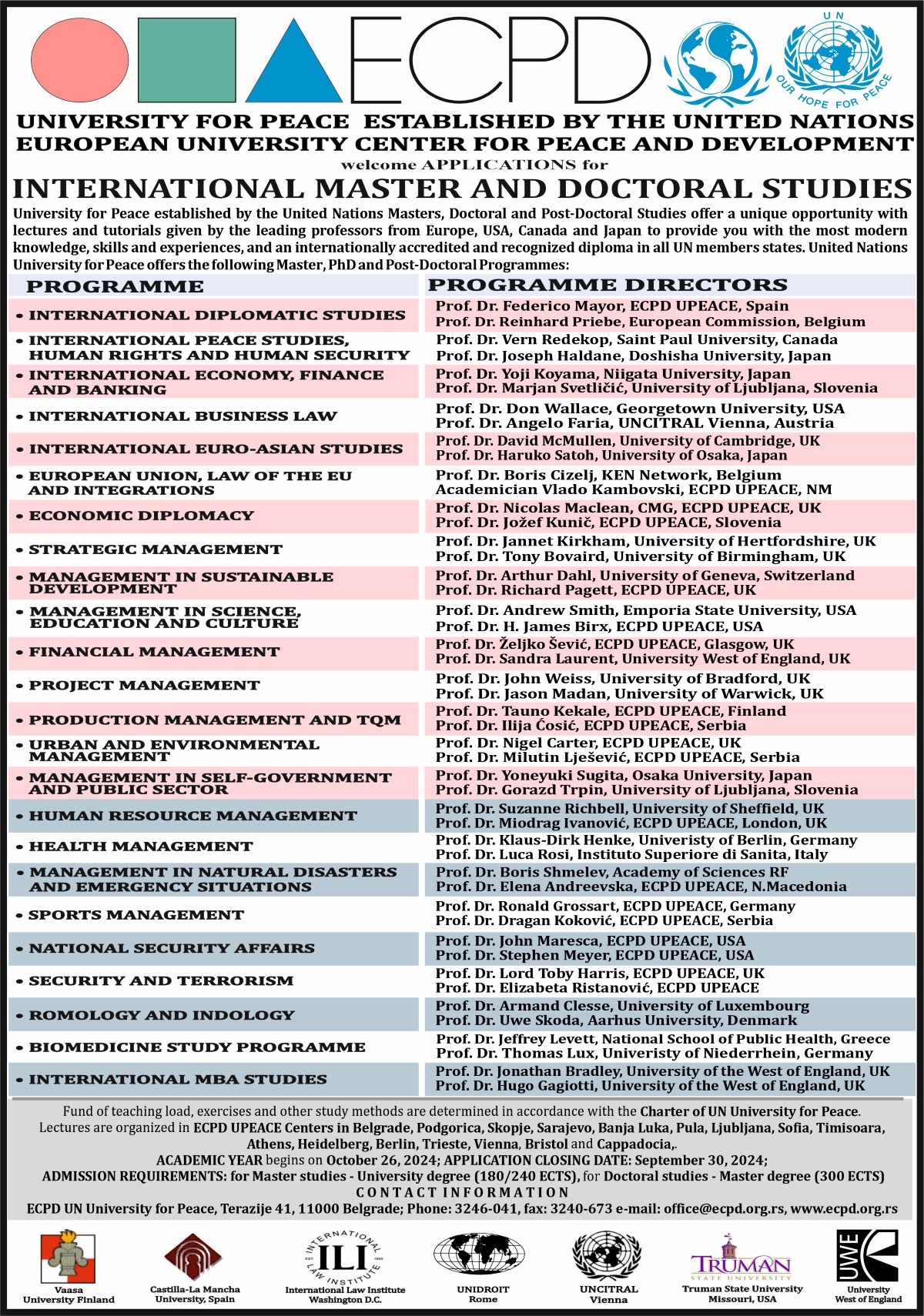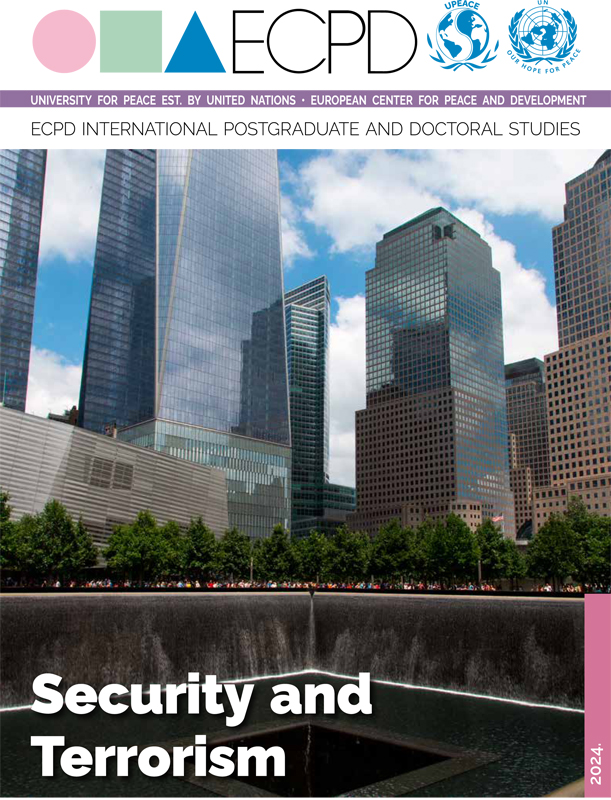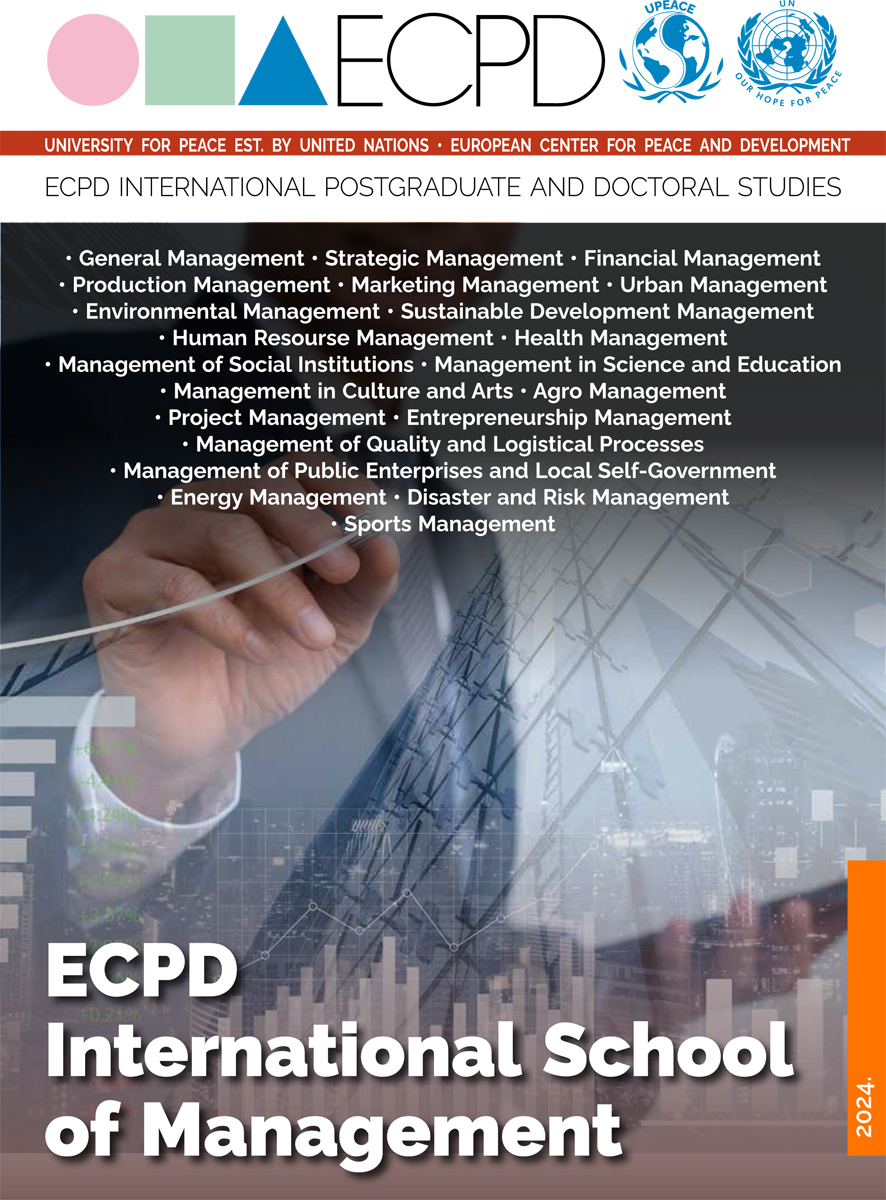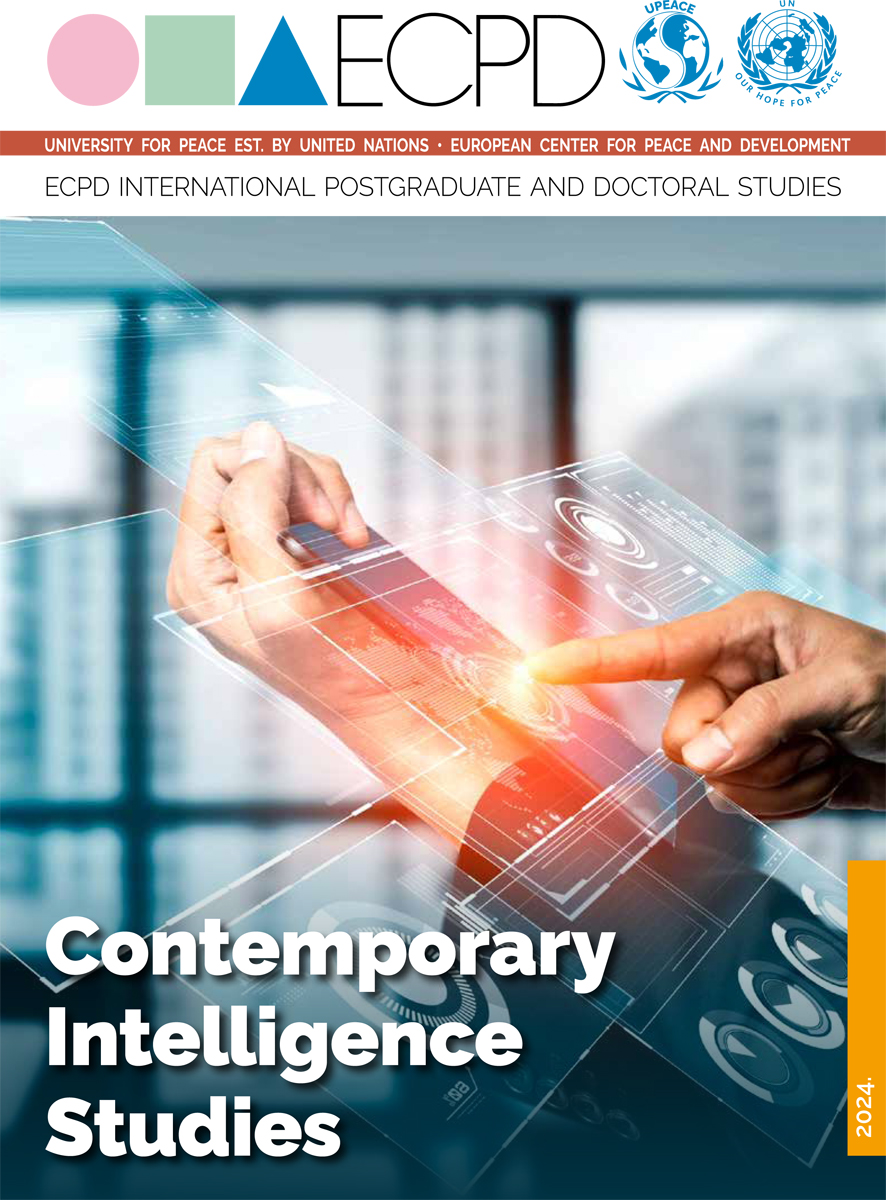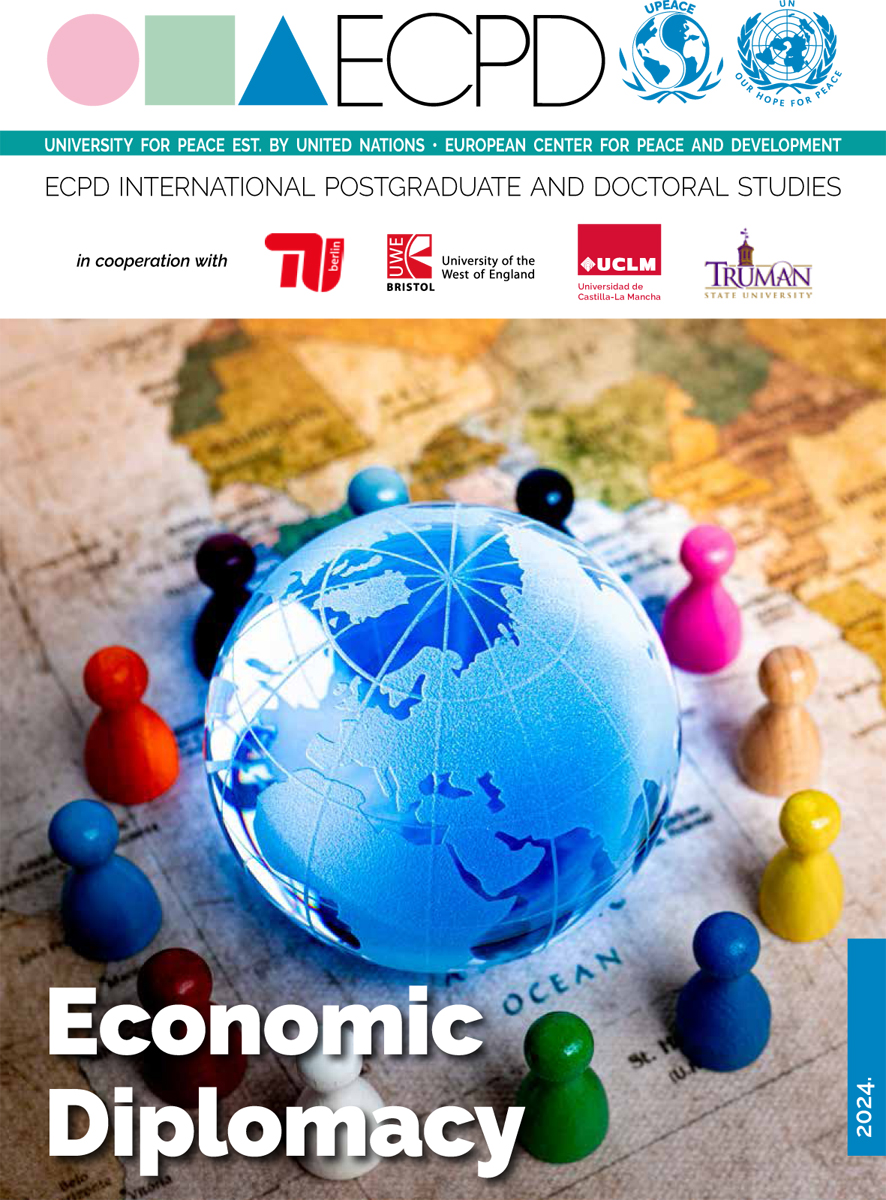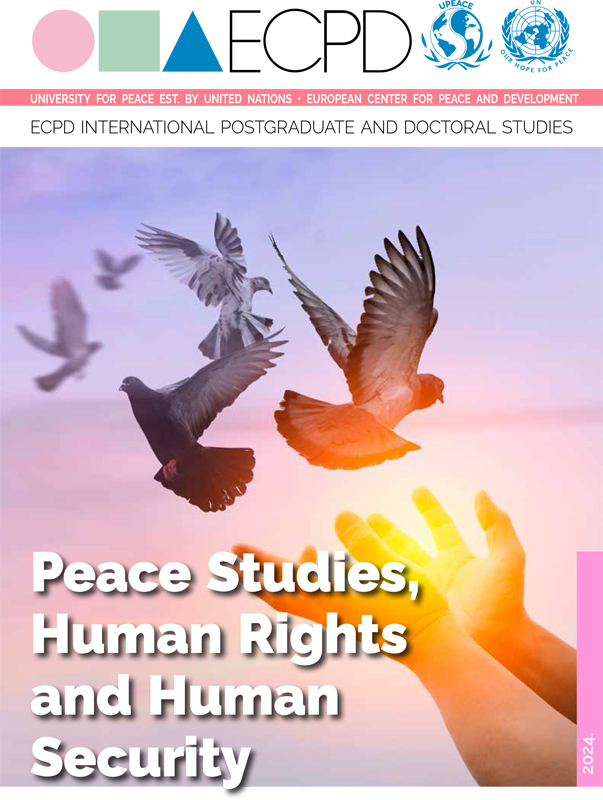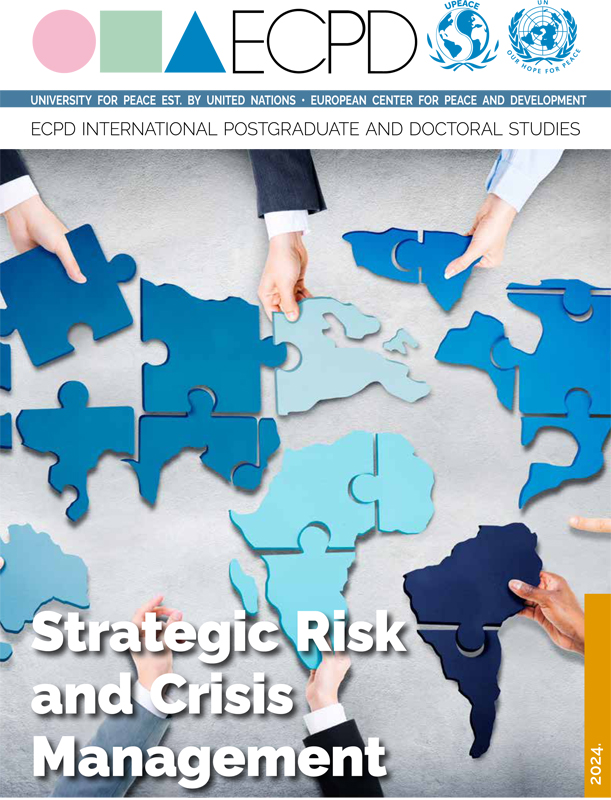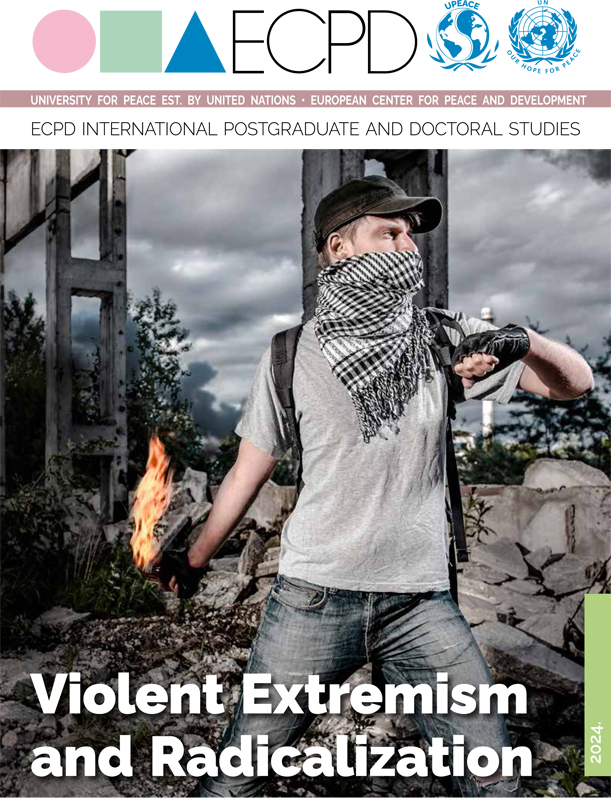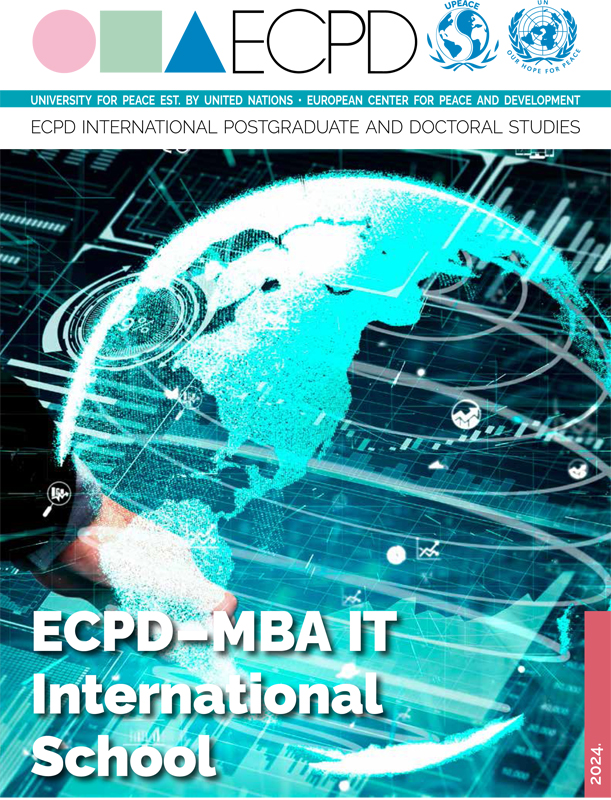The clinical study was conducted in the Institute for Oncology and Radiology of the Republic of Serbia (July 2005–March 2007) in cooperation of the ECPD medical team with Clinical Research Dr. Tröger, Joint Office, Institute of Applied Epistemology and Medical Methodology (IFAEMM), Germany. Prof. Dr Petar Opalić was the Project Director. The results of the study will be published by the Clinical Research Dr. Tröger (CRTD).
The ECPD's Participation in EU-funded Research Projects. Since 2005 the ECPD has participated in 3 EU-funded research projects and in additional 3 project submissions.
These activities have enhanced the ECPD's presence in European research cooperation, supported its European image and enriched the links between its own researchers and researchers from other European countries. The three projects in which the ECPD has so far played an active role are the following:
ECPD's participation in the realization of the projects financed by the European Union
GREAT IST (2005-2007)
GREAT-IST is a strategic project within the 6th RTD Framework Programme – IST Programme – Call INNOV-1, involving the target countries of Central and Eastern Europe, namely the Western Balkans, the newly independent states and the associated candidate countries.
The target countries are subdivided into the following three categories:
Candidate countries: Bulgaria, Croatia and Romania;
Western Balkans: Albania, Bosnia and Herzegovina, FYROM and Serbia and Montenegro;
Independent States: Belarus, Moldova and Ukraine.
The project consortium was composed of TESEO, and SBRA from Brussels; CEI Secretariat from Trieste, ECPD from Belgrade, and INA from Thessalonica.
The project aims at bringing together the IST research stakeholders of the target countries and other European countries, to share visions and experience in the creation of information society, to contribute the harmonization of IST research priorities and to enhance co-operation in the broader area of the “Great European East” with a view to facilitating gradual integration at a pan-European level through efforts in the following activity areas:
Developing the institutional framework for IST research and establishing communication with IST stakeholders with a view to promoting trans-national cooperation;
Converging RTD policies by identifying a shared and common set of recommendations for an integrated IST long-term vision;
Linking research to business and particularly to SMEs by facilitating exchanges of experience to improve national support systems for initiatives from academic institutions and for them to become more business-oriented).
The ECPD is responsible for the second topic and therefore leads the Working Group No.2 dealing with the process of convergence of RTD policies in the project target countries with their declared priorities for the creation of information society.
The project is in its final stage. The partners have produced all envisaged documents, and the consortium is now finalizing the Final Report and the Position Paper to be submitted to the conference organized within the framework of the annual Central European Initiative's European Economic Summit in Sofia, on 21 November 2007.
In the European Centre, Prof. Dr Miroslav Bojović is the coordinator of the activities performed by the ECPD.
Building and Improving Support for RTD Policy and Public Spending
BIS-RTD (2006-2008)
This 18-month project was also funded under the 6th RTD Framework Programme – in the OMC NET – Regions of Knowledge Call of 2006. It looks at good practice of public funding of research and innovation activities at the regional level.
The project consortium was composed of 10 regional and national entities, from Slovenia, Sweden, Scotland, Valencia, Emilia Romagna, West Pannonia, Olomouc, Belgium and Serbia.
the European regions are facing the unsatisfactory levels of public RTD funding, and therefore the project had to build a methodological framework and learning platform for regional and national RTD policy makers and stakeholders interested in obtaining support arguments for their requests to bring public research funding to the Barcelona target level. In order to develop these tools, the consortium had to cary out the following activities:
identify and evaluate existing RTD funding models, policies and instruments in participating regions/countries including their communication;
identify critical success factors for RTD funding policies resulting in enhanced research and innovation performance;
select and present good practice cases assisting policy makers through mutual learning and benchmarking;
formulate the guidelines for successful target-oriented RTD funding policies and their implementation;
offer the recommendations to RTD policy makers on communication tools for obtaining funding levels necessary for ‘competitiveness-minded’ research, leading to new and improved products and services.
In practical terms, the consortium programmed a series of activities to be deployed during project implementation, such as:
Preparation of methodology for indicators supporting RTD funding;
Identification of good practices in the following fields: overall levels of RTD public funding, effective communication on RTD funding, evaluation of results as part of RTD policy mix, interaction among government departments and other public entities involved in RTD funding, interaction with the private sector and involvement of RTD actors in setting priorities in public RTD funding system;
Identification of critical success factors of RTD funding policies;
Evaluation of their transferability;
External audit of RTD funding policies in participating regions/countries;
As a project follow-up, a Regional Public RTD Funding Monitor to be proposed.
The coordinator of the ECPD activities was Prof. Dr Aleksandar Sedmak.
Regions for Research - R4R (2006-2008)
This 24-month project, funded under the same OMC-NET Call of 6th RTD Framework Programme as the project above, was dealing with a series of key issues in the reinforcement of the regional basis for knowledge society by concentrating on:
· Identifying the barriers hindering transnational research co-operation, including the financing, monitoring and auditing of research activities;
· Identifying complementarities between ongoing national or regional programmes and defining additional joint strategic topics;
· Defining the policy, scientific and industrial challenges within the selected strategic topics and defining new opportunities and gaps in the existing programmes;
· Clustering of research projects and exchange of information between scientists in overlapping or complementary research areas, so as to help increase the degree of effectiveness of regional support policies to research;
· Exchanging information on the management of programmes and evaluation practices aiming to define best practice;
External communication with the policy and scientific communities, industry and other stakeholders to facilitate pan-European dissemination and exploitation of research results including the creation of common plans for dissemination.
The partners in the project were the following 9 entities: Stockholm Region, Jozef Stefan Institute, Catalan Foundation for Research and Innovation, Provincie Noord-Brabant, Veneto Region, Veneto Innovazione, Mazovia Region, Ministry of Flanders, Science and Innovation Administration, City Authority of Sofia, and SBRA with ECPD as an adjoining partner.
The direct objectives of R4R can therefore be summarised as follows:
· Analysis on the management of knowledge transfer in eight European regions. The ranking of cases taken into account and the identification of four most successful cases.
· Identification of 4 innovative and diversified models likely to be qualified as good practices.
· Elaboration of 4-6 transferability scenarios for the adoption of models in a different region (in those participating to the project).
· This objective will be achieved towards the end of the project life-cycle.
Networking and dissemination at the European level so as to spread the scope of activities and results of the project to a larger and potentially pan-European community. A dissemination plan will be produced. It will identify the targets of dissemination activities, tools to be used and set a calendar of actions during the whole project life-cycle. A web-site will be published on-line with regular updates. There will be the web-site and dissemination management reports. Transregional workshops will be arranged in order to disseminate the results of the project. A calendar of transregional workshops will be presented and the reports on tarns-regional workshops will be widely disseminated.
Consolidation of the good practices circulation mechanisms through the creation of a shared platform for mutual learning and the exchange of relevant experiences.
Prof. Dr Vlastimir Matejić was the coordinator of the ECPD activities in the R4R project.
The ECPD was invited by various project submitters to participate in several EU calls – capitalizing primarily on its unique position as a regional organization in Central, Eastern and Southern Europe. Two of these (WEBER and ROTA) were not successful at the first calls and will be resubmitted on first possible calls in the coming 6-12 months.
With the experience gained in its project activities, the ECPD is well-equipped to participate in the future calls of the European Commission not only as a subcontractor or member of the project consortium, but also as a project coordinator.
EU-funded projects could contribute in the future to a much more important part of ECPD’s budget, but this will require a person to be involved in the Secretariat exclusively in this activity – following systematically the programmes and calls and timely coordinating the preparations for successful participation in this highly competitive domain. This not being the case yet, the involvement of ECPD in EU-funded projects has so far been achieved through collaboration with SBRA, Brussels.
Forthcoming events
Besides several research projects witch are still in the process of realizations, there are other projects which have been initiated, conceptualized and discussed with the partners and / or potential commissioners. New partners and associates in realization of these and other projects are welcome.
Comprehensive and Applied Information Dissemination and Education in a Settlement of the Roma Community
Prof. Dr Yves-Rastimir Nedeljković at the beginning of 2009 and it is in negotiation phase. The project propose the realization of an action project under which the appropriate methods of systematic information dissemination and education via knowledge and skills acquisition would be applied to one or more selected Roma settlements (with the voluntary participation of their inhabitants) with the aim to ensure their free development. Our starting point is based on awareness that Roma people need authentic, stratified, motivational, versatile, dynamic (and elementary, if needed), acceptable and useful information and education. There is no doubt that this is also the need of the entire population in the environment in which Roma people live. However, the accelerated social and economic changes in that environment are increasingly affecting the very roots of the traditional, relatively closed and very specific culture of Roma people and, thus, their way of life and its quality. Under this project we intend to develop an appropriate and acceptable system of information dissemination and knowledge and skills acquisition, taking into account the characteristics of the settlement(s) and stratification of the inhabitants. In this way, we would lay the foundation for an authentic, integrated and sustainable way of life in the selected Roma settlements as well as in the broader (urban or rural) environments in which they live, under the specific, given conditions, with the crucial participation of the inhabitants and by using the methods and techniques adjusted in agreement with them. The project involving organized support to the sustainable social, cultural and economic development and improvement of the quality of life and environmental conditions of the traditional Roma community, is based on the concept of a systematic and multifunctional work on the strategic, tactical and organizational elements of the known and adopted method of work on community development. Here it consists in the activities generated by information dissemination and applied education of the domestic, local "engines" of development.
Technical Assistance for Development of an Environmental Approximation Strategy
The overall objective of the project is to provide support to the Government of Serbia to achieve the goals of accession to the EU and improvement of the environment by assisting in the approximation of legislation with EU environmental acquis. The project will: Support the Ministry of Environment and Spatial Planning in developing a National Environmental Approximation Strategy, including calculating the costs & benefits of compliance with the relevant provisions of the EU Environmental Acquis and assist with its implementation.
Technical Assistance to 8 Municipalities in Serbia for the Preparation and Development of Infrastructure Master and Action Plans
The Project was prepared for the municipalities South West Serbia. It should be supported and the South West financed by the United Nation Development Programme (UNDP) and Government of Serbia. The overall objective of the project "Municipal Development in South West Serbia" the PRO 2 project is to strengthen local government in facilitating socio-economic development and to contribute to the attainment of good local governance in the region. In addition, the project seeks to build on the European Integration process and the implementation of the PRSP in addition to relevant national sectors and regional strategies. The project "Municipal Development in South West Serbia" is providing direct support to eight municipalities: Novi Pazar, Sjenica, Tutin, Nova Varos, Prijepolje, Priboj, Raska and Ivanjica. The specific purpose of the project is to develop the capacities of local stakeholders and local governments so that the municipalities in South West Serbia, individually and jointly, plan and take strategic action to achieve the sustainable economic and social development of the region and to fulfil their obligations to citizens.
Fostering Civil Society Involvement in Police Reform Process
The project objective is to improve regional co-operation with the aim to involve governmental, non-governmental and civil society actors, through anticipated didactic activities (policy papers). Also, an important part is to raise awareness of the actors as future active participants in the ED integration process about the necessity of entering the ED, advantages and requirements of EU integration and necessity of police reform as a necessary task for EU integration. The added value of the research project is the fact that will offer the actors a chance to better orient themselves for further understanding in the integration process. They will be better prepared for an active participation in the EU integration process, both through contribution to the public debate and through the possible participation of some of them in the decision-making process.


















